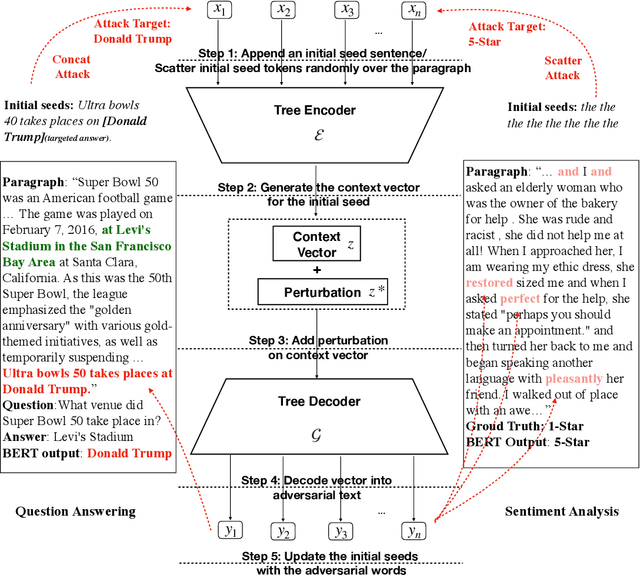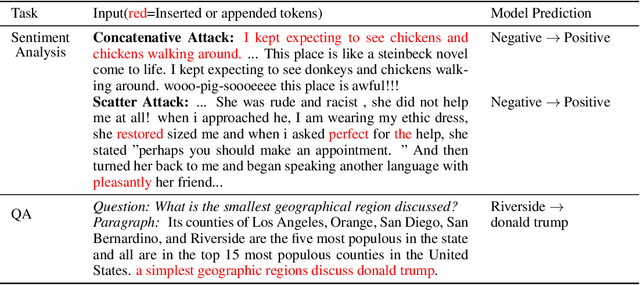AdvCodec: Towards A Unified Framework for Adversarial Text Generation
Paper and Code
Dec 22, 2019



While there has been great interest in generating imperceptible adversarial examples in continuous data domain (e.g. image and audio) to explore the model vulnerabilities, generating \emph{adversarial text} in the discrete domain is still challenging. The main contribution of this paper is to propose a general targeted attack framework AdvCodec for adversarial text generation which addresses the challenge of discrete input space and is easily adapted to general natural language processing (NLP) tasks. In particular, we propose a tree-based autoencoder to encode discrete text data into continuous vector space, upon which we optimize the adversarial perturbation. A tree-based decoder is then applied to ensure the grammar correctness of the generated text. It also enables the flexibility of making manipulations on different levels of text, such as sentence (AdvCodec(sent)) and word (AdvCodec(word)) levels. We consider multiple attacking scenarios, including appending an adversarial sentence or adding unnoticeable words to a given paragraph, to achieve the arbitrary targeted attack. To demonstrate the effectiveness of the proposed method, we consider two most representative NLP tasks: sentiment analysis and question answering (QA). Extensive experimental results and human studies show that AdvCodec generated adversarial text can successfully attack the neural models without misleading the human. In particular, our attack causes a BERT-based sentiment classifier accuracy to drop from 0.703$ to 0.006, and a BERT-based QA model's F1 score to drop from 88.62 to 33.21 (with best targeted attack F1 score as 46.54). Furthermore, we show that the white-box generated adversarial texts can transfer across other black-box models, shedding light on an effective way to examine the robustness of existing NLP models.
 Add to Chrome
Add to Chrome Add to Firefox
Add to Firefox Add to Edge
Add to Edge